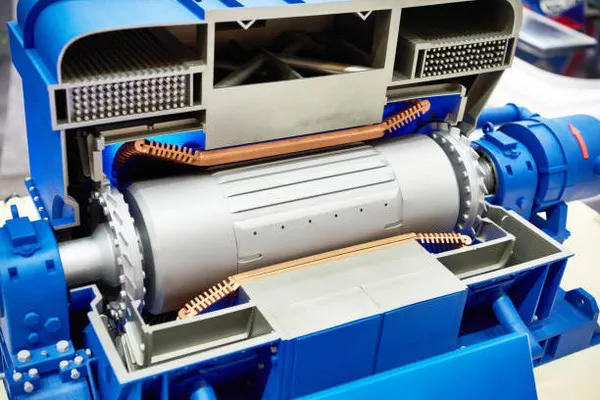As the allure of the great outdoors beckons, more and more individuals are embracing the nomadic lifestyle by investing in campers and RVs. While these mobile homes offer the freedom to explore diverse landscapes, they come with the challenge of ensuring a reliable power source for various appliances and amenities. Selecting the right generator size is crucial to ensure a comfortable and convenient camping experience. In this article, we will delve into the factors that influence the choice of generator size for campers, helping you make an informed decision.
Understanding Power Needs
The first step in determining the appropriate generator size for your camper is to understand your power requirements. Consider the appliances and devices you plan to use while on the road, including air conditioners, refrigerators, microwaves, lighting, and electronic gadgets. Make a comprehensive list of the power ratings (in watts) for each item, ensuring you account for both starting and running watts.
Starting watts represent the initial surge of power needed when an appliance is turned on, while running watts indicate the continuous power consumption during operation. Summing up these wattage requirements will give you an estimate of the generator size needed to support your camper’s electrical demands.
Calculating Power Consumption
To calculate the total power consumption accurately, it’s essential to factor in the duration each appliance will be in use. For instance, a microwave might only be operational for a few minutes, while a refrigerator or air conditioner may run continuously. Multiply the running watts by the number of hours each device will be used, then add the starting watts for appliances with motors (e.g., air conditioners or refrigerators) to account for initial power surges.
Consider Peak Power Usage
In addition to the basic power requirements, it’s crucial to factor in any potential spikes in power usage. For instance, air conditioners, refrigerators, and water heaters often have higher starting watts, requiring a generator with sufficient capacity to handle these occasional surges without overloading.
Generator Types
Generators come in various types, with the two main categories being inverter generators and conventional generators. Inverter generators are known for their clean and stable power output, making them suitable for powering sensitive electronic devices. They also tend to be more fuel-efficient and quieter than conventional generators, making them an ideal choice for campers who prioritize noise reduction and fuel economy.
Conventional generators, on the other hand, are generally more affordable and come in larger sizes. While they may produce a steady stream of power, the fluctuations in voltage can be less stable than that of inverter generators. Choosing between these types will impact the overall size and weight of the generator, so it’s essential to weigh the pros and cons based on your specific needs and preferences.
Generator Size Options
Generators come in various sizes, typically measured in kilowatts (kW) or watts (W). Smaller generators, such as those in the 2,000-watt range, are suitable for powering essential appliances and charging electronic devices. However, if you plan to use power-hungry devices like air conditioners or have multiple appliances running simultaneously, a larger generator in the range of 3,000 to 5,000 watts may be more appropriate.
For campers with extensive power needs or those planning to run high-wattage appliances, such as RV air conditioners, a generator in the range of 6,000 to 10,000 watts may be necessary. These larger generators are more robust and can handle the increased power demands of larger campers or motorhomes.
Consider Fuel Efficiency
Fuel efficiency is a crucial factor, especially for campers who intend to spend extended periods off the grid. Smaller generators are generally more fuel-efficient, providing longer run times on a single tank of fuel. Inverter generators are particularly known for their fuel efficiency, making them an attractive option for eco-conscious campers who want to minimize their environmental impact.
Additionally, consider the availability of fuel sources during your travels. While gasoline generators are common and convenient, propane and diesel generators are also viable options. Propane generators, in particular, are known for their clean-burning properties and extended shelf life, making them suitable for long-term camping trips.
Noise Levels
The noise generated by a camping generator can significantly impact the overall camping experience. Many campgrounds have specific noise restrictions, and a loud generator can disturb both the camper and neighboring campers. Inverter generators are generally quieter than conventional generators, making them a preferred choice for those who value a peaceful camping environment.
Check the noise level specifications provided by the manufacturer, usually measured in decibels (dB). Consider generators with noise levels below 60 dB for a quieter camping experience. Some manufacturers also offer special features, such as “eco mode,” which adjusts the engine speed based on the load, further reducing noise levels during periods of low power demand.
Portability and Weight
The size and weight of the generator are crucial considerations for campers with limited storage space or those traveling in smaller vehicles. Inverter generators are often more compact and lightweight than their conventional counterparts, making them easier to transport and store. Consider the physical dimensions and weight of the generator, especially if you plan to move it frequently or have limited space in your camper.
See Also What Size Generator To Run Central AC
Conclusion
Selecting the right generator size for your camper is a critical decision that involves assessing your power needs, considering the type of appliances you’ll be using, and evaluating factors such as fuel efficiency, noise levels, and portability. By understanding your requirements and considering the various options available, you can ensure a reliable power source that enhances your camping experience without compromising on comfort and convenience. Take the time to research and choose a generator that aligns with your specific needs, allowing you to embrace the freedom of the open road while enjoying the comforts of home.

